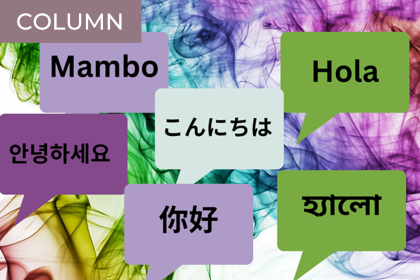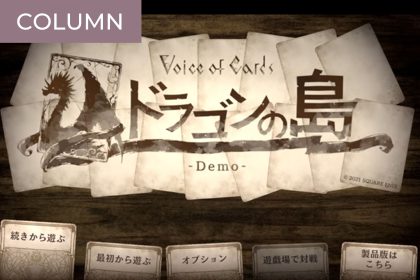On an unforgettable April day back in 2008, I found myself sitting across a desk from a travel agent in Nishi-Shinjuku, clutching a pair of freshly minted Narita Express train tickets in my hands. Awash with mixed feelings of accomplishment and disbelief, I had just managed to complete a relatively high-stakes transaction without using a…
What Is It Like to Work as a Translator at a Japanese Company?
If you’re learning Japanese, odds are you have considered working in translation. After all, there were 45 Japanese companies on the Forbes Fortune 500 list as of 2022, and many of them–and their suppliers, clients, and other stakeholders–need bilingual employees! So what’s it like working at a Japanese company as a translator? I’ll share with…
Matt (Game Gengo): Learning and Teaching Japanese through Video Games and YouTube
What is the best way to learn Japanese? “Focus on what works best for you,” says Matt, creator of the Game Gengo YouTube channel. And when Matt says this, he means it. In the spring of 2020, armed with the fervent belief that language learning can and should be fun, Matt leveraged pandemic-induced downtime to…
Learning Japanese Helped Me Learn 5 Other Languages. Here’s How.
Many people are surprised when I tell them that I know six languages: English, Japanese, Spanish, Mandarin Chinese, Bengali, and Swahili. (I’m also working on my seventh, Korean.) This is especially so since none of my languages are in the same language family (like Spanish, French, and Italian would be). Plus, they’re some of the…
The Most Common Counters – How to Count in Japanese, Part 2
In a previous article, we learned how to do basic counting and introduced the concept of “counters.” Remember that counters are like what differentiates a “piece” of cake from a “whole” cake in English, and Japanese has a lot of them. I also introduced the general counter ending in -つ (-tsu) in the previous article….
Language Learning Stories: How Did You Learn Japanese? Volume 2
As we learned in the first volume of this article series, there is no single correct path toward Japanese fluency and literacy. With so many methods, tools, books, and courses dedicated to learning one of the world’s most popular languages, it was only natural that I once again reach out to my network for another…
Is Duolingo Good for Learning Japanese? Yes and No.
Duolingo is probably one of the most popular language-learning apps out there. It’s definitely a wonderful app, and I mostly used it for learning Swahili before I went to work in Tanzania. I had actually never used it much for Japanese before, since initially the course was aimed at beginners. However, I was surprised when…
The 2 Anki Add-ons All Japanese Learners Should Use
We at Kokoro Media have written about Anki quite a bit. It is one of the most popular spaced-repetition flashcard apps out there and practically made for learning Japanese. (Even the name comes from Japanese: 暗記 anki means “memorize”!) Anki is the only flashcard app I have used extensively and stuck with. One of the…
Reading in Japanese: How to Boost Motivation and Increase Literacy
As much as I emphasize the importance of using flash cards to learn Japanese, by the time you achieve an intermediate level of literacy you’ll want to start reading native material. Transitioning from textbook reading exercises to the same books, magazines, and manga that native Japanese people read is intimidating. Selecting reading material that’s too…
Voice of Cards: One of the Best Video Games to Help You Learn Japanese
If you’ve ever attempted to play your favorite video games in Japanese, you know how frustrating the experience can be. Massive 60-hour role-playing epics from the Final Fantasy series can obliterate your motivation once you realize just how long it would take to get through them in Japanese. Other games may be simpler, but they…










